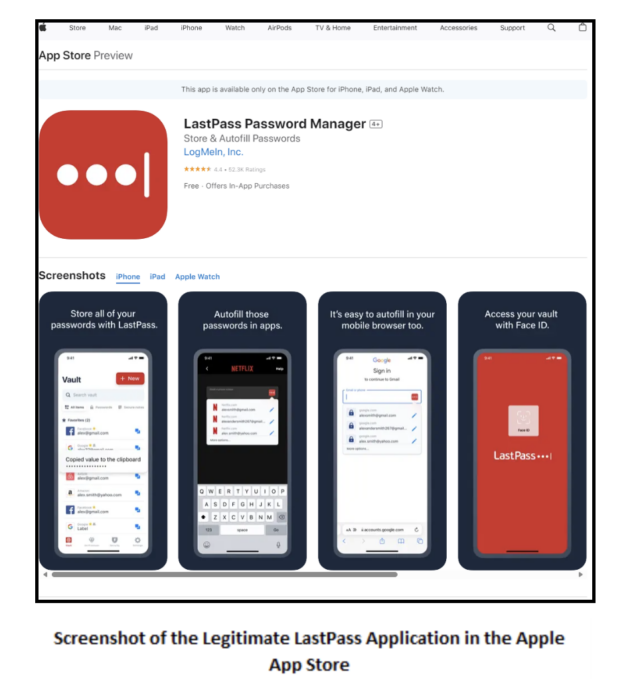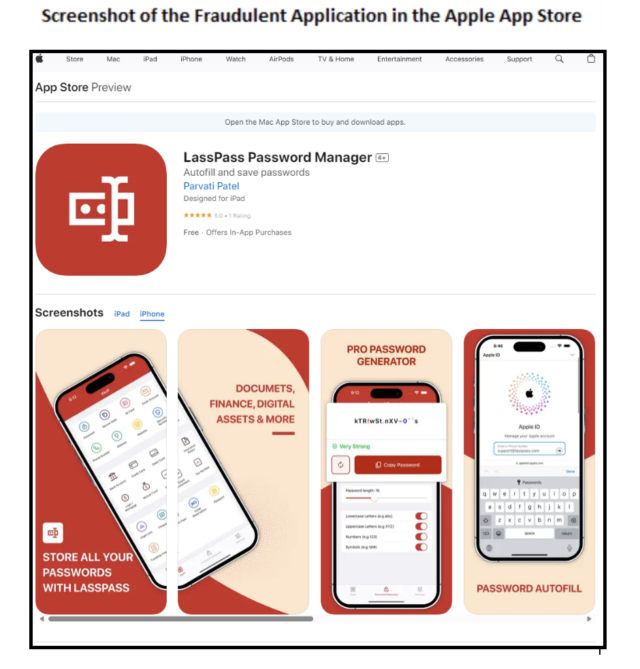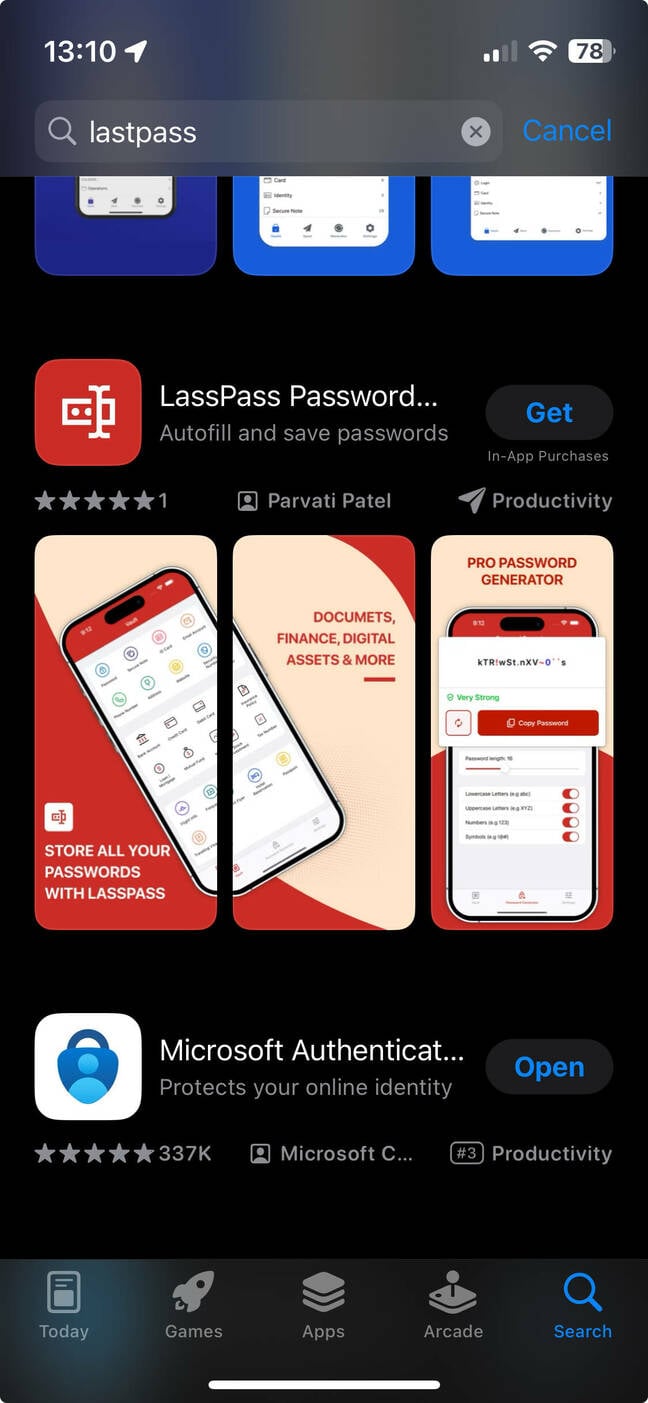
LastPass, a popular password management service, has warned its customers not to install a fake version of their app for Apple iPhones. The fake LastPass app was discovered by the company and is believed to have been submitted by an individual developer named Parvati Patel. It appears that the phony app gained entry to Apple's App Store through some means, but it is unclear how this happened. Millions of people use LastPass to store encrypted copies of their account passwords and other sensitive information, so the fake app poses a significant security risk if users fall for its deception.






